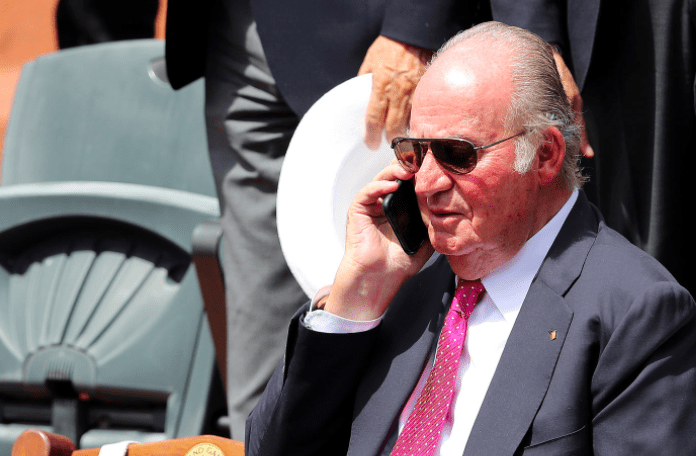40 years of a Constitution that King Juan Carlos did not swear
On December 6, 1978 the Spanish people approved the "sacred" constitution when to 3 years old Juan Carlos I reigned by the grace of Franco.
I remember that Juan Carlos swore loyalty to Franco on July 22, 1969, six years before he died the dictator coup.
His solemn words were was:
"loyalty to His Excellency the Head of State and fidelity to the principles of the National Movement and other Fundamental Laws of the Kingdom".
The problem is that on oath people are confused because they remember that "someone" swore the constitution ... That someone was his son Philip (the current king) who did so on January 30, 1986 to meet most age ( see video here ).
And later when he inherited the position from his father (June 19, 2014) with these words:
"I swear to faithfully perform my duties, observe and enforce the Constitution and laws and respect the rights of citizens and autonomous communities" .
The point is that "folksy" did not. "
And he did not because he swore loyalty to Franco. There is no getting around it ...
Even therefore could be interpreted that the current king is illegally.
I mean, emeritus king swore loyalty to Franco who put him to reign in the transition, but, not to swear the Constitution, preferences abdication would not have had to govern as Article 57.1 states: "the Crown of Spain is hereditary in the successor of King Juan Carlos I de Borbon, the legitimate heir of the historic dynasty. (...). "
Okay, but is it legitimate for someone who has not sworn the Constitution decides his heir?
How did we ?, we must honor and respect the Constitution to the letter or not? Or is there that people can pass it by lining?
To see that the invention is not me ...
SO PUBLISHED THE COUNTRY IN 1978 ( here the original link ).
The possibility that King Juan Carlos jure the Constitution seems to dissipate , despite speculation that have been made in recent days, according to the interpretation given by sources of the highest solvency support its argument on legal and constitutional grounds. Cobra weight, however, that His Majesty punish the Constitution - that say the firm for promulgación- in a solemn ceremony, which fulfills all the parliamentary forces.The same sources interpret Don Juan Carlos has paid solemn oath on the two occasions when it was necessary, being proclaimed Prince of Spain and taking possession, as King, the Head of State.
The Constitution does not provide for the swearing in any of its provisions, so, if any , would be an extra-legal act, not required by the system, and anomalous from this point of view. The King sanctions by signing all legal provisions that require it for publication and promulgation in the Official Gazette.That same requirement of sanction arises for the Constitution, and, according to the above and given the importance of this supreme rule of law of the nation, is seriously considering an extraordinary act that could take place in La Zarzuela palace, and which concur representations of all parliamentary political forces to coat the most solemn sanction of the Constitution.
Confounder
Article 61 of the Constitution states that "the King, on being proclaimed before the Parliament, swear to faithfully perform their duties ... '. The fact that Don Juan Carlos I lend now, could introduce an element of confusion because it could be interpreted that needs this procedure for the monarch to be considered as such.Only his successor will have to submit to the oath and before Crown Prince, on coming of age, according to the precepts of the Constitution.
The Board of Spokesmen of the Congress discussed on Thursday the possibility of the oath and empowered the table of the House to study the issue.
Alfonso Guerra (PSOE) raised the need for the possible act of swearing had a great solemnity , while Manuel Fraga (AP) suggested that the event be held with minimum expense and "spartan austerity".
You see ...
FRANCISCO BALAGUER (Professor of Constitutional Law) said:
... " one can not therefore speak of legitimacy in any case, despite the exerted during the transition, until the Constitution of 1978. In any case notes diffuse legitimacy if it was to be convirtiera indirectly a brake on involution



